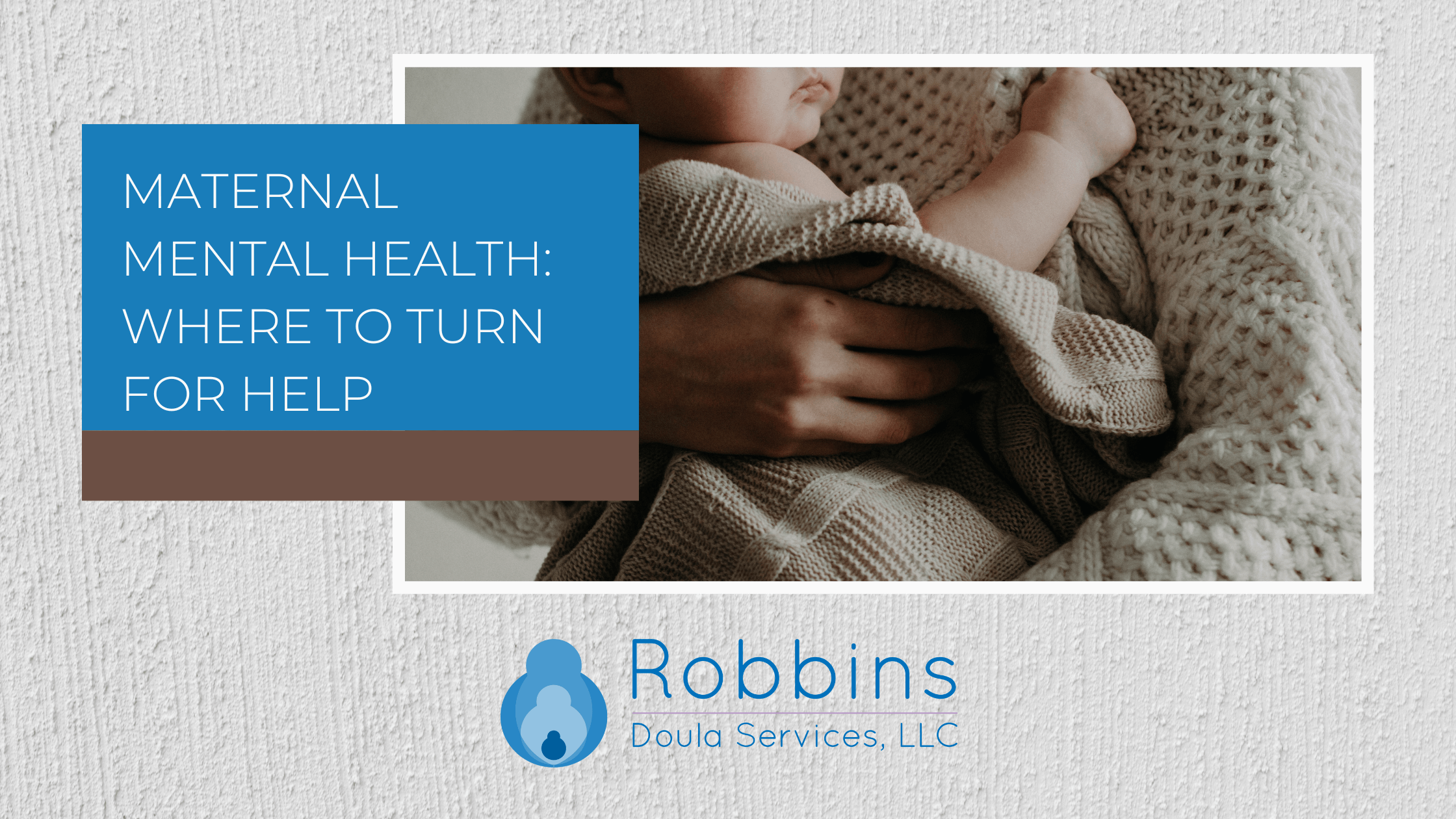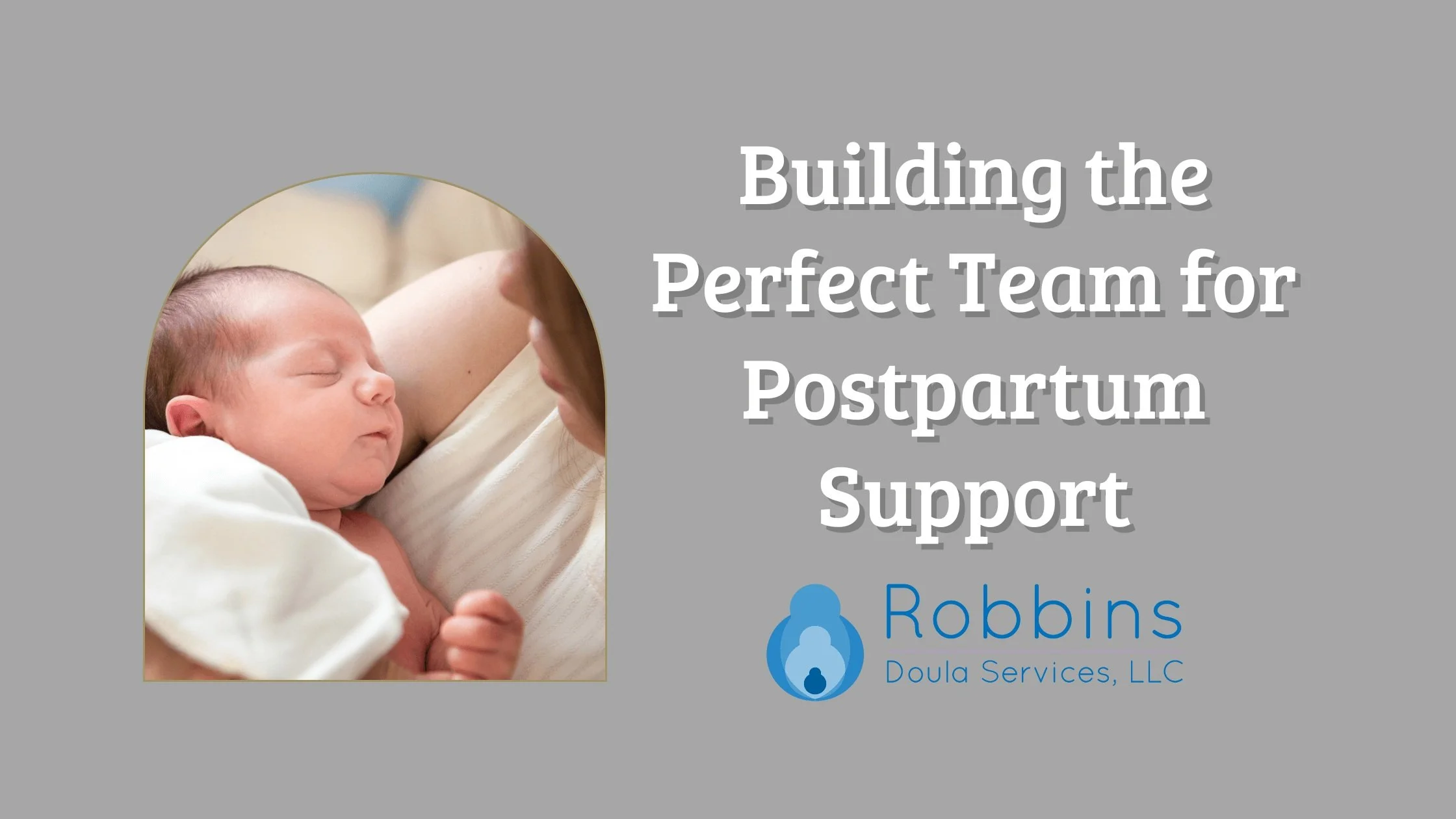Maternal Mental Health: Where to Turn for Help
Welcoming a baby into the world is often a joyful experience, but for many new mothers, the postpartum period can also be incredibly challenging. Amidst the joy and wonder of motherhood, it's crucial to acknowledge that it's okay to not feel okay. Maternal mental health is a vital aspect of postpartum care, yet it's often overlooked or stigmatized. As a postpartum doula, I've witnessed firsthand the importance of supporting new parents through this delicate time.
The need for mental health resources is very real. According to Postpartum Support International, 1 in 5 mothers experience postpartum depression. While I’ll refer to maternal mental health throughout this blog post, it’s also important to acknowledge that this issue also affects men. In fact, 1 in 10 fathers suffer from postpartum depression. These numbers are likely higher in reality, but these conditions are often underdiagnosed. In addition to postpartum depression, postpartum anxiety is finally receiving more attention, and parents are becoming more aware of the ways that this condition can present. Additionally, OCD, PTSD, and psychosis can all occur during pregnancy or postpartum.
If you, as a parent, think you may be experiencing symptoms of a perinatal mood or anxiety disorder, where can you turn for help? In this blog post, we'll explore various resources available to parents struggling with their mental health during pregnancy and the postpartum period.
Maternal Mental Health Resources:
Medical Providers
Your healthcare team, including your obstetrician, midwife, or primary care provider, plays a crucial role in supporting your mental health during the postpartum period. Don't hesitate to reach out to them if you're experiencing symptoms of postpartum depression, anxiety, or other mental health concerns. They can offer guidance, recommend treatment options, and connect you with additional support services as needed. In the St. Louis area, we are also fortunate to have psychiatrists who specialize in reproductive mental health care.
Therapists Specializing in Maternal Mental Health
Therapy is a valuable tool for addressing maternal mental health concerns. The American College of Obstetricians and Gynecologists recommends psychotherapy as a first-line treatment for mild-to-moderate perinatal depression. Seeking out a therapist who specializes in perinatal mood and anxiety disorders can provide you with personalized support and strategies for coping with the challenges of motherhood. Most therapists offer virtual sessions, making it easier to access support from the comfort of your own home. Please feel free to reach out to me for a personalized recommendation for a therapist in the St. Louis area. If you live elsewhere, the Postpartum Support International Provider Directory is a great resource to identify a therapist who has completed additional training in perinatal mental health.
Postpartum Doula Support
Having a postpartum doula as part of your support team can ease the overall transition into parenthood. As a doula, I provide emotional, informational, and practical support to new families following the birth of their baby. While doula support is non-clinical, this type of help is a great compliment to the support you’re receiving through your medical team and mental health therapist. Whether it’s having a doula care for your baby so you can sleep, answer questions about your newborn, provide trusted referrals, help prepare easy meals and snacks, or run errands to shorten your to-do list, enlisting doula support can simply make this time of life a little easier. Also, having a relationship with a doula can fight feelings of isolation in those early weeks when you are adjusting to a very different stage of life. Identifying a doula with additional training in maternal mental health is important, and again the Postpartum Support International Provider Directory can help you locate a trained doula in your area.
Local Peer Support Groups
Peer support groups offer a valuable source of connection and understanding for mothers navigating the challenges of the postpartum period. These groups provide an opportunity to share experiences, exchange advice, and build meaningful relationships with other mothers facing similar struggles. In the St. Louis area, the MOMS Line is an outstanding resource that provides in-person and virtual support groups, as well as individual peer support via telephone. It’s a warm line, meaning that you call – 314-768-6667 - and leave a message, and then the program coordinator will return your call to discuss what resources might best fit your needs. This is a free service offered by SSM Health, but patients of any hospital network are welcome to utilize the MOMS Line.
Postpartum Support International Support Groups
PSI offers a wealth of resources for mothers experiencing perinatal mood and anxiety disorders. Their online support groups provide a safe space for parents to share their experiences, receive support, and connect with others who understand what they're going through. PSI offers more than 50 online support groups with specific areas of focus, including birth trauma; NICU parents; queer and trans parents; parents of multiples; and ADHD support. They also have a range of pregnancy groups, groups for dads, and even groups for parents of toddlers.
Maternal Mental Health Hotline
Sometimes, a listening ear can make all the difference. The maternal mental health hotline – 833-852-6262 - provides support and guidance to mothers struggling with their mental health. Whether you're feeling overwhelmed, anxious, or depressed, trained professionals are available to offer compassionate support and connect you with additional resources if needed.
Taking care of your mental health is essential for both you and your baby's well-being. Remember, you're not alone, and there are resources available to support you through this. Whether you're struggling with postpartum depression, anxiety, or simply feeling overwhelmed, reaching out for help is a courageous step towards healing and recovery. As a postpartum doula, I'm here to help you every step of the way. You are worthy of support, and you deserve to feel empowered in your experience as a parent.
About the Author, St. Louis Postpartum Doula, Kathleen Robbins:
Kathleen Robbins is a postpartum doula and Certified Lactation Counselor in the St. Louis, Missouri area. She is particularly passionate about maternal mental health and has completed extensive training through Postpartum Support International and Heartland PMAD Consultants. She has worked extensively with parents who are experiencing perinatal mood and anxiety disorders and is committed to being a helpful resource to all families. To learn more about Kathleen’s services, reach out today.









